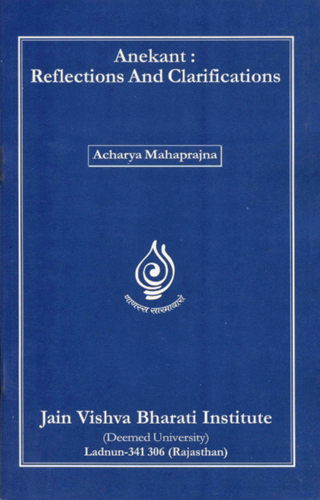Anekānta is a form of knowledge and anekāntika substance is the object of knowledge. The basis of anekānta is the nature of reality (sat) or substance. The nature of the substance in itself is permanent-cum-temporary. It does not make any difference if it is known by an ordinary man or an omniscient. The only difference is that a common man knows it through the sensuous knowledge whereas the omniscient knows it through the direct knowledge. The law of anekānta is of universal application. Substance cannot exit without mode; therefore, it applies on substance; mode cannot exist without substance; therefore, it applies on mode. The transcendental existence and empirical existence are not absolutely separate in the Jain philosophy. The mode is empirical existence and the substance is transcendental existence; but they are inseparably joined together—both of them are two aspects of the same existence; and therefore, they cannot be conceived of as absolutely independent.
If existence is to be propunded even by an omniscient, he will have to use syādvāda and saptabhaṅgī and similar is the case with an ordinary man. When substance in itself is permanent-cum-temporary, how can the onmiscient express it in absolute terms? He will have to use the language of syādvāda e.g. substance is relatively (i.e. with respect to a particular point of view) permanent and relatively temporary. A part of molecule of three atoms is expressed from one view point, while another part of the same molecule is not expressed from that point of view. There would be no difference, whether this molecule of three atoms is expressed by an omniscient or by an ordinary man.
The methodology of anekānta does not admit of any difference between an omniscient and an ordinary śrutajñānī. The theory of Syādvāda is not connected with perfection or imperfection of knowledge. There is no reason to accept that the knowledge of imperfect being is aikāntika. Anekānta does not imply that the knowledge of one who knows partial truth is aikāntika and the knowledge of one who knows the whole truth is anekāntika. The basis of anekānta is the triplicate nature (i.e. origination, cessation and permanence) of substance and not limitation or unlimitation of knowledge (i.e. śrutajñāna and kevaljñāna). The object of knowledge of an omniscient in its entirety can be the object of the partial knowledge of śrutajñāni also. As already stated, the omniscient knows directly the whole truth whereas a man of partial knowledge, can know it through the statement of the omniscient i.e. through the scriptures; therefore one cannot say that the knowledge of the man of partial knowledge is necessarily aikāntika.
The nature of the permanent and the temporary are not imposed on substance by knowledge, perfect or imperfect. Permanence and transitoriness are the objective attributes of the substance, and not of knowledge. Because the substance is intrinsically permanent-cum-temporary, it does not depend on the knowledge of the knower. As the nature of the substance is permanent-cum-temporary for the omniscient, so it is for the ordinary knower (who is endowed with only partial knowledge).
 Acharya Mahaprajna
Acharya Mahaprajna
 Publisher:
Publisher: 